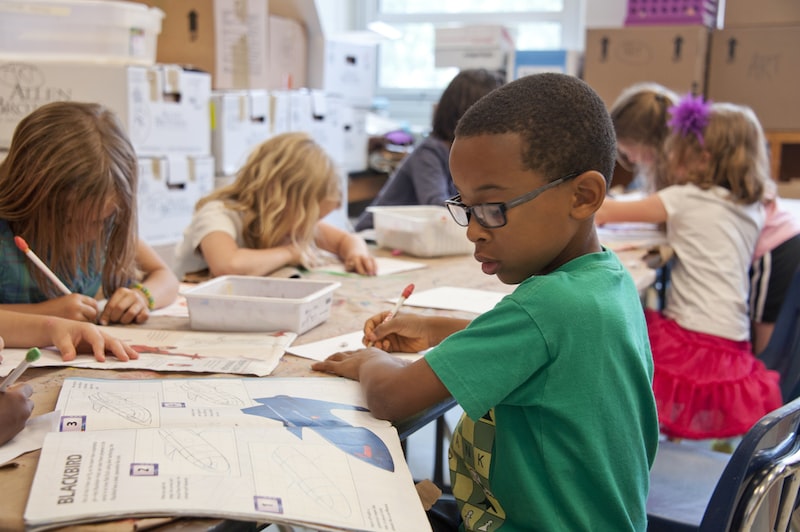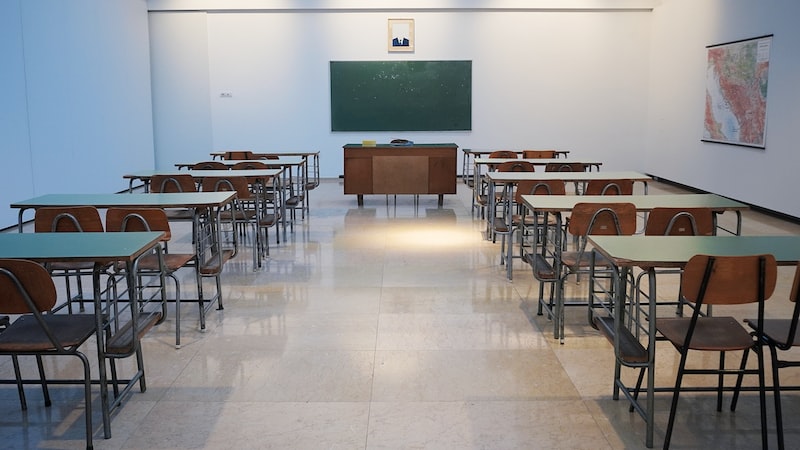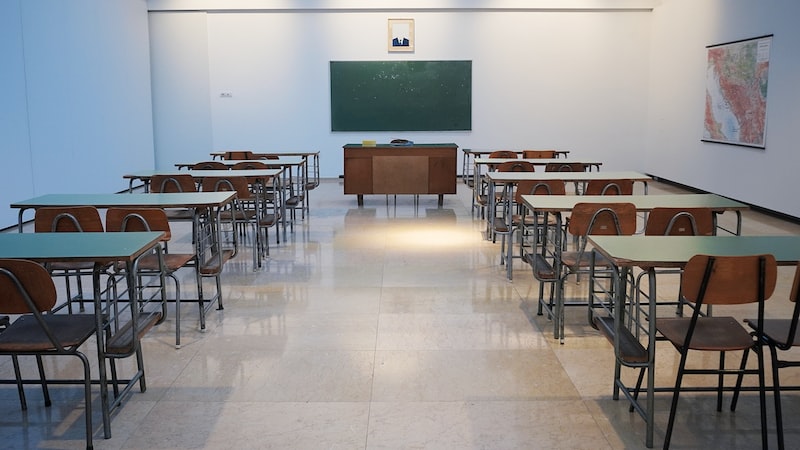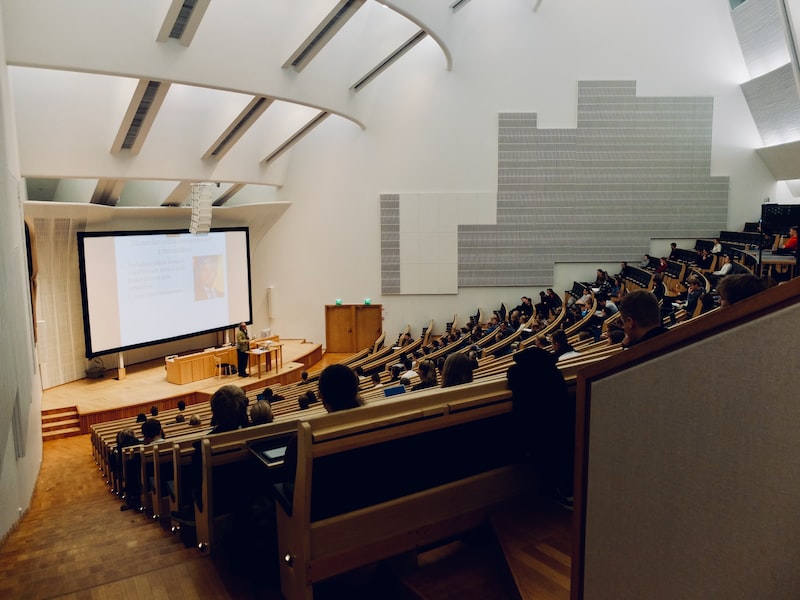In today’s interconnected world, preparing students to become active global citizens is crucial. As the boundaries between nations diminish and cultural exchange becomes increasingly prevalent, educational institutions are recognizing the importance of fostering global citizenship among their students. One effective way to achieve this goal is through international programs that provide students with unique opportunities for personal growth and cross-cultural learning.
International programs offer students the chance to step outside their comfort zones and immerse themselves in different cultures, languages, and perspectives. By studying abroad or participating in exchange programs, students gain firsthand experience of living in a foreign country, which can be a transformative and eye-opening experience. They have the opportunity to interact with people from diverse backgrounds, navigate unfamiliar environments, and adapt to new ways of thinking and problem-solving.
These programs encourage students to break down stereotypes, challenge their preconceived notions, and develop a broader worldview. When students engage with different cultures and communities, they learn to appreciate diversity, respect cultural differences, and embrace inclusivity. They become more open-minded, tolerant, and empathetic individuals who value multiculturalism and understand the importance of global cooperation.
Furthermore, international programs provide students with invaluable academic benefits. They expose students to new educational systems, teaching methods, and research opportunities. Studying in a foreign country allows students to explore subjects from an international perspective, deepening their understanding of various disciplines. It enables them to collaborate with scholars and students from around the globe, fostering intellectual growth and expanding their academic networks.
Beyond academics, these programs enhance students’ language proficiency skills. Immersion in a foreign language environment accelerates language acquisition and provides practical application opportunities. By communicating with locals on a daily basis, students develop fluency, cultural competence, and effective communication skills, which are essential in today’s global job market.

In conclusion, international programs play a pivotal role in cultivating global citizenship among students. They facilitate personal development, foster cross-cultural understanding, broaden worldviews, and equip students with valuable skills for the future. By embracing these programs, educational institutions empower students to become ambassadors of positive change in an increasingly interconnected world.
Building Intercultural Competence through International Exchange Programs
Are you ready to embark on a journey of personal growth and cultural exploration? International exchange programs offer you the chance to build intercultural competence like no other experience can. Imagine immersing yourself in a different country, surrounded by unfamiliar sights, sounds, and customs. It’s an adventure that will leave you forever changed.
But what exactly is intercultural competence? It’s the ability to effectively communicate and interact with people from different cultures, respecting and appreciating their perspectives. In today’s interconnected world, this skill is highly valuable and sought after by employers and educational institutions alike.
International exchange programs serve as a catalyst for developing intercultural competence. By living and studying in a foreign country, you’re exposed to a multitude of diverse experiences. You’ll find yourself navigating through language barriers, adapting to new social norms, and learning to appreciate different ways of thinking.
One key aspect of building intercultural competence is the development of empathy. When you step into someone else’s shoes and see the world from their perspective, you gain a deeper understanding of their culture and values. This newfound empathy helps foster meaningful connections and bridges gaps between cultures.
Moreover, international exchange programs provide numerous opportunities for cultural immersion. You’ll have the chance to actively participate in local traditions, festivals, and celebrations. Whether it’s savoring exotic cuisines, mastering traditional dances, or learning about ancient customs, every experience will broaden your horizons and ignite a sense of curiosity within you.
These programs also encourage self-reflection and self-discovery. Stepping out of your comfort zone pushes you to confront your own biases, assumptions, and stereotypes. Through introspection, you develop a greater awareness of your own cultural identity and values, which leads to personal growth and a more open-minded worldview.
In conclusion, international exchange programs are a transformative journey towards building intercultural competence. They provide a rich tapestry of experiences that challenge and shape you in profound ways. So, why not seize the opportunity to expand your horizons, embrace diversity, and become a global citizen? The world is waiting for you to embark on this incredible adventure.
The Role of Service-Learning Initiatives in Promoting Global Citizenship
Have you ever wondered how we can foster a sense of global citizenship? In today’s interconnected world, it is crucial to cultivate an understanding and appreciation for diverse cultures, perspectives, and global issues. This is where service-learning initiatives come into play. These initiatives go beyond traditional classroom learning by providing hands-on experiences that engage students in meaningful service activities while promoting global citizenship.
Service-learning initiatives offer a unique opportunity for individuals to make a positive impact on local and global communities. By actively participating in service projects, students not only develop important skills but also gain a deeper understanding of social, economic, and environmental challenges faced by different communities around the world. Whether it’s volunteering at a local food bank or engaging in community development projects abroad, these experiences encourage empathy, compassion, and a sense of responsibility towards others.
One of the key benefits of service-learning initiatives is the opportunity they provide for cross-cultural exchange. When students engage in service projects in diverse communities, they are exposed to different languages, traditions, and ways of life. This exposure helps break down stereotypes and fosters a genuine appreciation for cultural diversity. By working side by side with people from different backgrounds, students learn to navigate cultural differences and develop intercultural communication skills, which are essential in our increasingly globalized society.
Moreover, service-learning initiatives empower individuals to become agents of change. Through their involvement in service projects, students develop leadership skills, critical thinking abilities, and a sense of civic responsibility. They learn to identify societal needs and take action to address them. By actively participating in service activities, students gain a sense of efficacy and realize that their actions can make a difference in the world. This empowerment fuels their desire to create positive change and encourages them to embrace their role as global citizens.
In conclusion, service-learning initiatives play a vital role in promoting global citizenship. They provide valuable opportunities for individuals to engage in hands-on service activities, fostering empathy, cross-cultural understanding, and a sense of responsibility. By participating in these initiatives, students develop the skills and mindset necessary to address global challenges and become agents of change. So, let’s embrace service-learning as a powerful tool to cultivate a generation of global citizens who are ready to make a difference in our world.
Enhancing Cross-Cultural Understanding through Cultural Immersion Programs

Are you ready to embark on an exciting journey of enhancing cross-cultural understanding? Imagine immersing yourself in a different culture, surrounded by new sights, sounds, and experiences. Cultural immersion programs offer a remarkable opportunity to step out of your comfort zone and embrace the rich tapestry of diversity that our world has to offer.
But what exactly are cultural immersion programs? These programs are designed to provide individuals with the chance to fully immerse themselves in another culture, allowing them to gain a deep understanding and appreciation for its customs, traditions, and way of life. By living and interacting with locals, participants can learn firsthand about the values, beliefs, and practices that shape a particular society.
One of the key benefits of cultural immersion programs is the ability to break down barriers and foster genuine connections between people from different backgrounds. Through meaningful interactions, participants can develop empathy and open-mindedness, gaining insights into perspectives that may differ from their own. This increased understanding builds bridges of tolerance and appreciation, ultimately promoting global harmony.
Imagine strolling through the bustling markets of Morocco, exchanging stories and laughter with local artisans. Or perhaps you envision yourself participating in traditional ceremonies in Japan, learning the art of tea-making from a wise tea master. Cultural immersion programs offer these transformative experiences and more, leaving lasting impressions that go beyond mere photographs and souvenirs.
Moreover, these programs enable participants to develop invaluable skills such as adaptability, communication, and problem-solving. Stepping into unfamiliar territory requires flexibility and resourcefulness, encouraging personal growth and resilience. As you navigate new cultures, you’ll discover hidden strengths within yourself, expanding your horizons and broadening your worldview.
In a world that often seems fragmented and divided, cultural immersion programs serve as a powerful catalyst for unity and understanding. They remind us of the beautiful diversity that exists among us and highlight the shared humanity that unites us all. So, why not take the leap? Embark on a cultural immersion program and unlock a world of endless possibilities, where amazement and impact await at every turn.
Developing Global Perspectives and Critical Thinking Skills through Study Abroad
Are you ready to embark on an exciting journey of personal and intellectual growth? Imagine immersing yourself in a new culture, navigating unfamiliar streets, trying exotic cuisine, and building lasting friendships with people from around the world. Study abroad programs offer a unique opportunity to develop global perspectives and critical thinking skills that can shape your future in ways you never thought possible.
When you step outside of your comfort zone and into a foreign country, you open yourself up to a world of possibilities. Each day becomes a classroom, where you learn from experiences that go far beyond what textbooks can teach. By living and studying in another country, you gain firsthand insights into different social, cultural, and political contexts. This exposure broadens your horizons and encourages you to question your preconceived notions about the world.
Critical thinking is a skill essential for success in today’s rapidly changing and interconnected world. Studying abroad forces you to adapt and think on your feet. You encounter new challenges and unfamiliar situations that require resourcefulness and problem-solving skills. Whether it’s navigating public transportation in a foreign language or negotiating cultural differences, you become adept at finding creative solutions.
Furthermore, studying abroad cultivates empathy and understanding. When you interact with people from diverse backgrounds, you begin to appreciate the richness and complexity of human experiences. Your worldview expands, and you develop a greater capacity for empathy, tolerance, and respect. These qualities are invaluable in an increasingly globalized society, where collaboration and cooperation across cultures are vital.
Think of study abroad as a transformative experience, akin to polishing a diamond. As you navigate through unfamiliar territory, you uncover hidden facets of your own character and capabilities. Just like a diamond, study abroad shapes and refines you, leaving you sparkling with newfound wisdom and self-awareness.
So, are you ready to explore the world, discover new perspectives, and refine your critical thinking skills? The journey awaits. Take that leap of faith, and let study abroad be your catalyst for growth and self-discovery. Bon voyage!
Empowering Students as Global Advocates through International Programs
Are you ready to embark on an extraordinary journey of personal growth and global impact? Join us as we explore the incredible opportunities that international programs offer in empowering students to become global advocates. From expanding cultural horizons to honing essential skills, these programs open doors to a world of possibilities.
Imagine immersing yourself in a vibrant tapestry of diverse cultures, languages, and perspectives. International programs provide an unparalleled opportunity to connect with people from around the globe, fostering understanding, empathy, and appreciation for different ways of life. By stepping outside your comfort zone and embracing new experiences, you’ll develop a profound sense of cultural intelligence that will serve you well throughout your life.
But it’s not just about broadening your worldview; international programs also equip you with valuable skills that are highly sought after in today’s interconnected world. Communication skills, adaptability, and resilience are just a few examples of the abilities you’ll cultivate through navigating unfamiliar environments and collaborating with peers from different backgrounds. These transferable skills will not only enhance your academic journey but also prepare you for future career success.
International programs empower students to become advocates for important global issues. By engaging with local communities, tackling real-world challenges, and participating in meaningful projects, you’ll gain firsthand experience in making a positive impact on the world. Whether you’re working on sustainable development initiatives or promoting social justice, these programs provide a platform for you to amplify your voice and effect change.
As you navigate the array of international program options available, consider the unique benefits each one offers. Some programs focus on language immersion, allowing you to master a new tongue and unlock doors to cross-cultural communication. Others emphasize community service, enabling you to contribute to meaningful causes while developing your leadership skills.
So, are you ready to embrace the transformative power of international programs? Step out into the world, embrace new cultures, and become an empowered student advocate for global change. The journey awaits—seize the opportunity to shape your future and make a difference on a global scale.
Assessing the Impact of International Programs on Students’ Global Citizenship Development
In today’s interconnected world, the impact of international programs on students’ global citizenship development cannot be underestimated. These programs provide students with unique opportunities to broaden their horizons, gain cultural competence, and develop a global perspective. But what exactly is global citizenship, and how do these programs contribute to its development?
Global citizenship refers to a mindset that transcends national boundaries, emphasizing a sense of belonging to a larger global community. It entails an awareness of global issues, respect for diverse cultures, and a commitment to making positive contributions to society at both local and global levels. International programs play a vital role in fostering these qualities.
By immersing students in different cultural environments, international programs expose them to new perspectives and ways of life. This firsthand experience helps them appreciate the richness and diversity of our world. They interact with people from different backgrounds, learn about different customs and traditions, and develop empathy and understanding.
Moreover, international programs often include academic components that focus on global issues such as sustainability, human rights, and social justice. Through coursework, discussions, and research, students engage with these topics and develop a deeper understanding of the challenges facing our global society. They learn to think critically, analyze complex problems, and propose innovative solutions.
Additionally, international programs promote personal growth and self-discovery. Students step out of their comfort zones, face unfamiliar situations, and navigate through various challenges. This process builds resilience, adaptability, and confidence. It encourages them to question assumptions, challenge stereotypes, and embrace new ideas.
Furthermore, these programs foster lifelong connections and networks. Students form friendships with peers from around the world, creating a global support system. These relationships provide opportunities for collaboration, knowledge sharing, and future partnerships, ultimately contributing to a more interconnected and cooperative world.
In conclusion, international programs have a profound impact on students’ global citizenship development. They cultivate cultural competence, critical thinking skills, and a strong sense of social responsibility. By participating in these programs, students are better equipped to navigate our increasingly interconnected world and become active contributors to a more inclusive and sustainable global society.











Leave a Reply